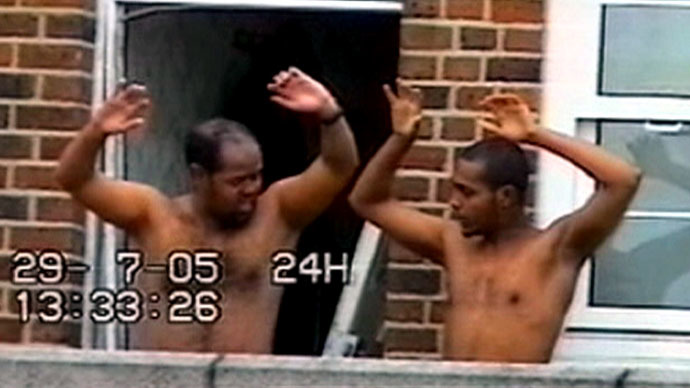7/7 terrorist copycats lose human rights court appeal

Four men who planned to bomb London's underground transport network two weeks after the deadly 7/7 attacks have lost an appeal at the European Court of Human Rights.
Three of the men claimed their human rights had been breached because statements they made to police without lawyers present had been used as evidence against them.
On Tuesday, the ECHR rejected their claims that police had denied them proper legal advice, saying their subsequent trials had not been unfairly prejudiced.
The men were jailed over the attempt to replicate the suicide bombings on London's transport network on July 7, 2005, which left 52 commuters dead. Their Al Qaeda-inspired attack failed because their homemade bombs failed to detonate.
Three of the four men, Somali nationals Muktah Said Ibrahim, Yassin Hassan Omar and Ramzi Mohammed, said they had initially been refused access to lawyers in police interviews. They were found guilty of conspiracy to murder and sentenced to minimum terms of 40 years imprisonment.
A fourth defendant, Briton Ismail Abdurahman, was convicted in 2008 of assisting one of the failed bombers and failing to disclose information about the planned attacks. He was sentenced to 10 years imprisonment, cut to eight on appeal.
“It has been convincingly established that at the time of the impugned police interviews there was an exceptionally serious and imminent threat to public safety, and that this threat provided compelling reasons which justified the temporary delay of all four applicants' access to lawyers,” ECHR judges said.
Abdurahman argued he should have been arrested and offered access to a lawyer when he began incriminating himself in an interview as a witness. The court said the decision was not unreasonable “based on the fear that a formal arrest might lead him to stop disclosing information of the utmost relevance to public safety issues.”
READ MORE:Fight against terror should not trump privacy rights – Human Rights Commissioner
The bombers were initially refused access to lawyers so they could be subject to “safety interviews” – urgent interrogations permitted under the Terrorism Act 2000.
“The provisions of the Terrorism Act 2000 ... struck an appropriate balance between the importance of the right to legal advice and the pressing need in exceptional cases to enable the police to obtain information necessary to protect the public,” the court added.
“That legal framework had been carefully applied in the case of the first three applicants. Their restriction on access to a lawyer had been delayed by between four and eight hours only.”












